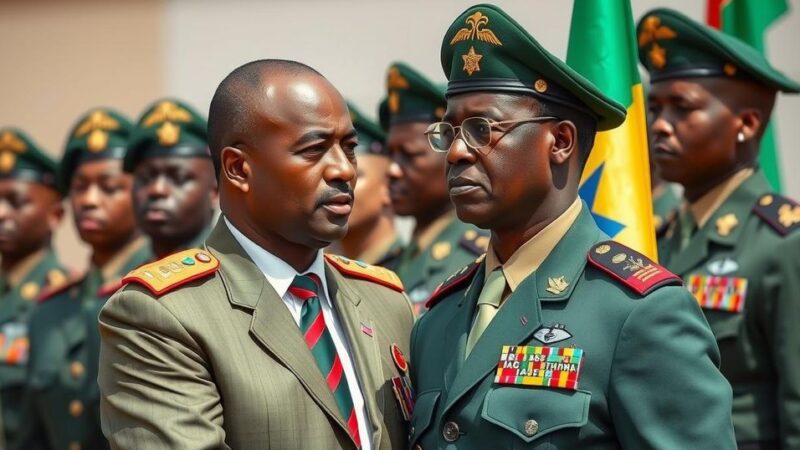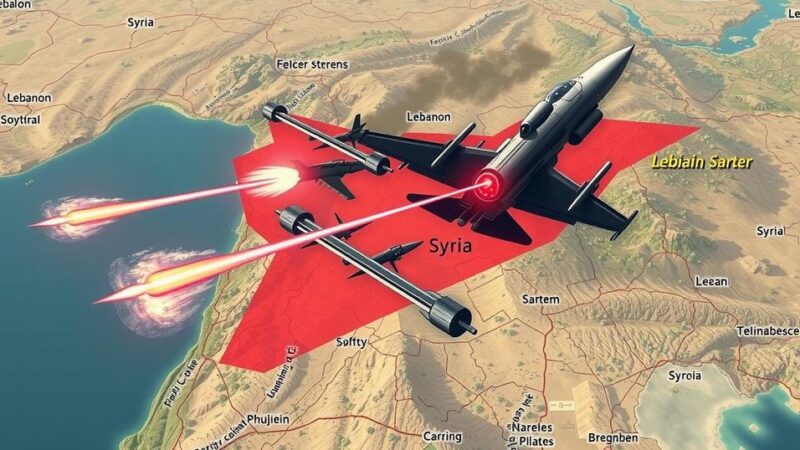Mahmoud Abbas commemorates 20 years in the Palestinian presidency, characterized by internal division, particularly with Hamas, and challenges in achieving statehood. His tenure witnessed attempts at diplomacy and peace, yet failures in elections and public disillusionment have intensified criticism. With international involvement, particularly from Saudi Arabia, Abbas faces pressure to deliver tangible results for Palestinian aspirations amid ongoing geopolitical challenges.
As Mahmoud Abbas commemorates two decades as President of the Palestinian Authority, his leadership embodies a complex interplay of division, disillusionment, and unwavering determination within Palestinian society. Ascending to power in 2005 following Yasser Arafat’s death, Abbas’s presidency was initially characterized by a commitment to achieving an independent state through diplomatic channels, yet the ongoing internal rivalries, especially with Hamas, have severely undermined his efforts.
Abbas was expected to hold elections shortly after taking office, yet these have not occurred since 2009 largely due to the rift between his Fatah party and Hamas, which took control of Gaza in 2007. This schism has hampered Palestinian unity and the ability to negotiate effectively with Israel. Abbas began his term amid hope for peace, advocating nonviolent resistance and the two-state solution, yet has faced increasing criticism as Palestine’s plight remains unresolved and international support wanes.
The continuous Israeli settlement expansion and human rights concerns have further complicated peace discussions, shifting public perception in Gaza and the West Bank from optimism to skepticism. As Saudi Arabia emerges as a regional mediator promoting the two-state solution through its Global Alliance initiative, Abbas seeks to leverage this support for a renewed push for Palestinian statehood.
While the landscape appears grim, particularly with Prime Minister Netanyahu’s firm stance against territorial concessions, the international community, including the European Union and Arab nations, continues to express support for Abbas’s leadership and the Palestinian cause. Yet, questions linger over Abbas’s legitimacy due to the lack of elections and rising calls for generational change within Palestinian leadership.
Tests loom ahead for Abbas, not just regarding domestic issues, but also concerning the potential for a breakthrough in the long-stagnant peace process, as heightened international focus on the conflict raises new hopes, albeit amid persistent challenges. His legacy hangs in the balance, contingent on whether he can convert two decades of advocacy into a tangible path towards statehood and peace.
The article examines the complex political landscape surrounding Mahmoud Abbas as he marks 20 years in office as President of the Palestinian Authority. It reflects on the challenges faced during his tenure, including the ongoing division between Fatah and Hamas, the influence of international actors such as Saudi Arabia in mediating the conflict, and the impact of repeated failures in achieving peace with Israel. The article contextualizes Abbas’s leadership within the broader narrative of Palestinian aspirations for statehood, evaluating both his contributions and critiques.
In conclusion, Mahmoud Abbas’s presidency has been marked by significant challenges and ongoing struggles for a unified Palestinian state. While his commitment to diplomatic avenues has garnered international support, the persistent internal discord, reliance on foreign aid, and inability to hold elections have significantly undermined his credibility. Moving forward, Abbas’s ability to navigate the evolving geopolitical landscape, particularly with Saudi Arabia’s intervention, will be crucial in determining his legacy and the prospects for Palestinian independence.
Original Source: www.arabnews.com







